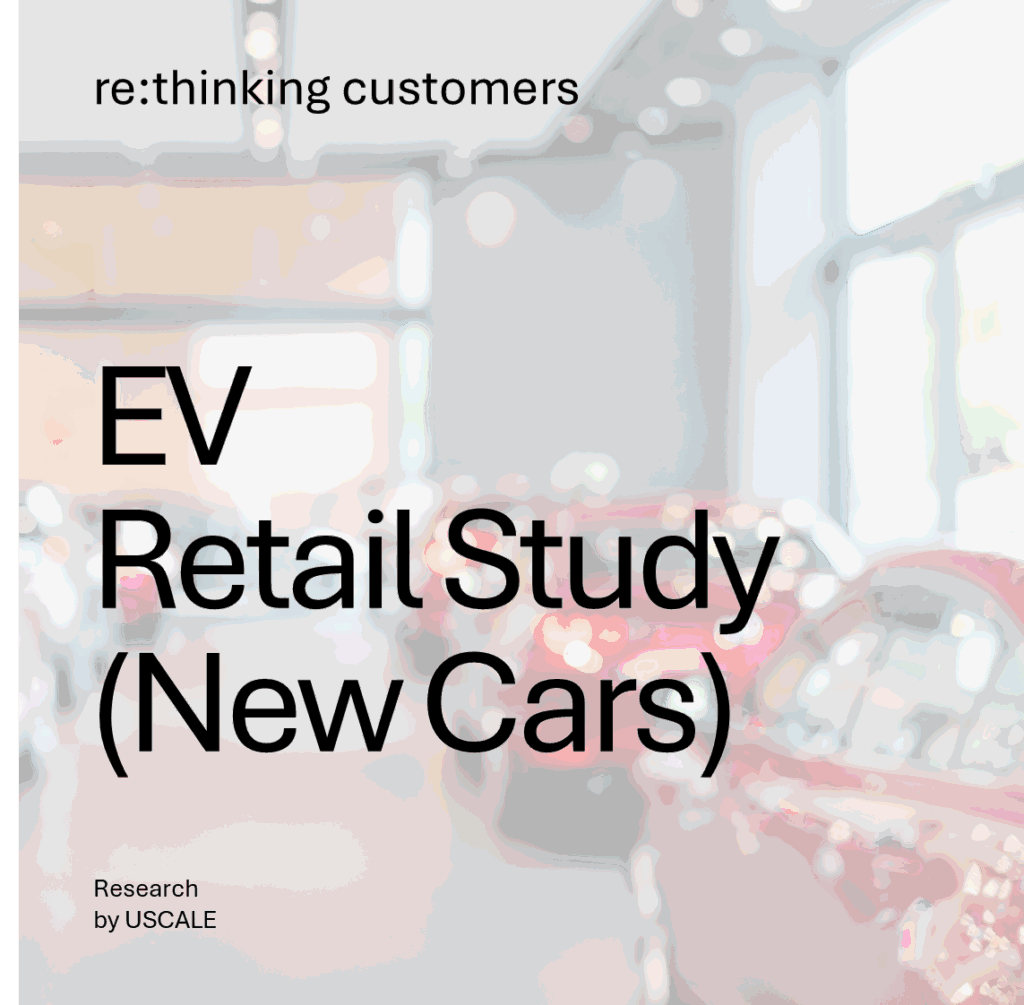Customer Experience: EV Retail Study 2025 – New Cars

Customer experience in the process of buying an electric car
The study surveys the expectations and experiences of electric car buyers during the information phase, the purchase phase and the post-purchase phase. To this end, people in various phases of the car purchase customer journey were asked about their respective experiences.
The electric car retail study was conducted online in June and July 2025 among more than 900 shoppers and 650 owners of electric cars in Germany (total sample: N = 1,561).
In addition, N = 503 shoppers and owners of combustion engine vehicles were surveyed as an ICE comparison group. This highlights the differences between electric and combustion engine vehicles.
The results include a PDF report (160 pages) and optional unlimited access to a dashboard for subscribers to analyse the data themselves.
Contents and added value of the EV Retail Study
Contents of the EV Retail Study
Segmentation criteria:
- Annual mileage
- Relevant usage situations for the purchase decision
- (Shopper) current car brand
- Company car
- Demographics of electric car drivers, net household income
- Living situation
- Planned charging behaviour
- EV experience (year of purchase of first EV)
- EV as first or second vehicle, drive system of the other vehicle
Brand loyality:
- Brand interest
- Shopper: Intended loyalty
- Owner: actual loyalty
General interest in EVs, Chinese and used electric cars:
- (New car buyers) Reasons against buying a used car
- (Used car buyers) Reasons for buying a used car
- (from the 2024 EV Retail Study) Chinese electric cars: Interest in Chinese electric cars, reasons for interest/reasons for rejection, relevant aspects for assessing when a car is ‘Chinese’, assessment of selected brands as to whether they are perceived as ‘Chinese’
Online vs. retailer purchase
- Preference for online vs. offline purchases
- Reasons for buying online
- Reasons for buying from retailers
Information phase:
- Information needs regarding e-mobility in general and charging technology in particular
- Sources of information, evaluation of the information obtained
- Drill-down: purchasing and comparison portals used
- Interest in EV-specific features (artificial engine sound, simulated manual transmission, drift mode)
Customer journey in the purchase funnel:
- OEM websites: Manufacturer websites visited, website ratings, recommendations to manufacturers for website improvements, customer loyalty achieved
- Dealer websites: Dealer websites visited, website ratings, recommendations to dealers for website improvements, customer loyalty achieved
- Events: Events visited, evaluation of events, recommendations to organisers, customer loyalty achieved
- Dealer visits: Dealers visited, number of dealer visits, evaluation of dealer visits, recommendations to dealers, customer loyalty achieved
- Test drives: Test drives carried out, duration of test drives, test loading, evaluation of test drives, recommendations to dealers, customer loyalty achieved
Purchase phase:
- Configuration: Evaluation of configuration options per brand (from Retail Study 2024) Desire for customisation, evaluation of configuration, recommendations to manufacturers
- Purchase: Contacting the dealer, purchase advice, vehicle-related features that influence the purchase decision, brand-related features that influence the purchase decision, relevance of cost types, relevance of Google ratings for the purchase decision, sale of the previous vehicle
- Contracts: Number of visits to different dealers before purchase, number of visits to the dealer where the purchase was ultimately made, online/offline contract conclusion, financing, place of contract conclusion, banks selected, insurance, interest in additional contracts, e.g. charging current, customer loyalty through the contract process, recommendations to manufacturers, customer loyalty achieved
Post-purchase phase:
- Handover: Handover preferences, duration and content of the handover, evaluation of the handover duration, evaluation of the handover, recommendations to manufacturers, customer loyalty achieved, presentation of the service, contact person for problems
- Follow-up: Requirements, evaluation of the follow-up, recommendations to manufacturers, customer loyalty achieved
Summary:
- Decisive criteria for purchase decision
- Reasons for not choosing the brands originally considered
- NPS brand retailers (in-store purchase)
- NPS brand retailers (online purchase)
- Google reviews after purchase
Added value and benefit for e-car sales organisations and dealers
The study is especially aimed at sales organisations of vehicle manufacturers or importers, car dealers and dealer developers.
The Electric Vehicle Retail Study generally provides KPIs for all relevant process steps in e-car retail. This makes the both strengths and weaknesses of the respective brands clear. Hence, this enables sales organisations to evaluate and improve their own competitive position. The study shows those responsible in sales and marketing what information e-car buyers need in the purchase funnel. It also helps subscribers to the study to define the requirements for the design of websites, configurators and sales processes at manufacturers and dealers. The data also form a qualified basis for the development or adaptation of dealer training to the needs of eMobility.
Dashboard for analysis
Many exciting findings only become apparent when the results are evaluated separately according to important customer groups. Thus this allows providers to target their offers to different user segments in a differentiated way. Thanks to the high sample size, subscribers to the study can split the results in the interactive dashboard as they wish and analyse them in detail.
USCALE focus studies: User studies on electromobility
Since 2018, USCALE has been systematically surveying EV drivers about their expectations and experiences at all touchpoints of the e-mobile customer journey. You can also find an overview of all USCALE focus studies HERE.
We show extracts from other studies in the LinkedIn articles by USCALE and Axel Sprenger, our company founder.
If you have any questions, please contact us at contact@uscale.digital.
